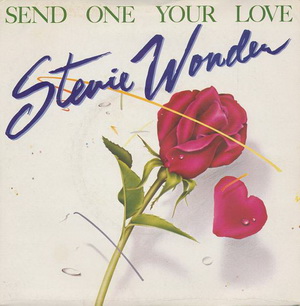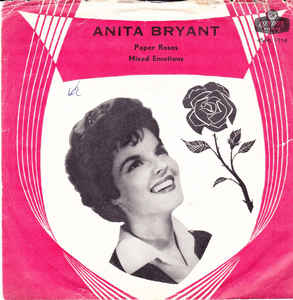Related Research Articles

"The Air That I Breathe" is a ballad written by British-Gibraltarian singer-songwriter Albert Hammond and Mike Hazlewood, initially recorded by Hammond on his debut album, It Never Rains in Southern California (1972). It was a major hit for the Hollies in early 1974, reaching number two in the UK Singles Chart.

"The Night the Lights Went Out in Georgia" is a Southern Gothic murder ballad, written in 1972 by songwriter Bobby Russell and first recorded by his then wife, singer, comedian, and actress Vicki Lawrence. Lawrence's version, from her 1973 album of the same name, went to number one on the US Billboard Hot 100 chart after its release. Of several cover versions, the one recorded by Reba McEntire for her 1991 album For My Broken Heart peaked at number 12 on the Hot Country Songs chart.

"If" is a song written by American singer-songwriter David Gates in 1971. Originally popularized by his group Bread, "If" charted at No. 4 on the U.S. Billboard Hot 100 when released as a single in 1971 and No. 6 in Canada. It also spent three weeks at No. 1 on the U.S. Easy Listening chart, and one week at the top of the Canadian AC chart.

"Breaking Up Is Hard to Do" is a song recorded by Neil Sedaka, co-written by Sedaka and Howard Greenfield. Sedaka recorded this song twice, in 1962 and 1975, in two significantly different arrangements, and it is considered to be his signature song. Between 1970 and 1975, it was a top-40 hit three separate times for three separate artists: Lenny Welch, The Partridge Family and Sedaka's second version.

"You're in My Heart (The Final Acclaim)" is a song written and recorded by Rod Stewart for his 1977 album Foot Loose & Fancy Free. The song become a hit, reaching the top ten of many countries, including the United States (number 4), Canada (number 2), and Australia, peaking at number 1 for one week.

"Send One Your Love" is a 1979 soul single by American and Motown musician and singer Stevie Wonder from his album Stevie Wonder's Journey Through "The Secret Life of Plants" (1979). Released in November 1979 as the album's lead single, the song reached number four on the US Billboard pop singles chart in 1979 The song also became Wonder's second single to top the adult contemporary chart, following 1973's "You Are the Sunshine of My Life", topping the chart for four weeks. On the soul charts, "Send One Your Love" went to number five.

"Sundown" is a song by Canadian folk artist Gordon Lightfoot, from the titular album, released as a single in March 1974.

"All I Ever Need Is You" is a popular song written by Jimmy Holiday and Eddie Reeves, and initially recorded by Ray Charles for his 1971 album, Volcanic Action of My Soul. The most well-known version of the song is the hit single by Sonny & Cher which, in 1971, reached No. 7 on the U.S. Billboard Hot 100, and was their single of greatest chart longevity, spending 15 weeks on that chart. Their album by the same title sold over 500,000 copies reaching RIAA gold status.

"Too Much, Too Little, Too Late" is a song performed by singers Johnny Mathis and Deniece Williams. Lyrics and music were arranged by Nat Kipner and John Vallins. The single was a comeback of sorts for Mathis as his last U.S. top 10 hit was 1964's "What Will Mary Say" and his last U.S. #1 hit was 1957's "Chances Are."

"Paper Roses" is a popular song written and composed by Fred Spielman and Janice Torre. It first was a top five hit in 1960 for Anita Bryant. Marie Osmond recorded it in 1973 and took her version to number one on the US country chart.

"Love Ballad" is a song by R&B/Funk band L.T.D. Jeffrey Osborne is the lead singer.

"Love Is in the Air" is a 1977 disco song by Australian singer John Paul Young. It was written by George Young and Harry Vanda, and released as the lead single from Young's fourth studio album, Love Is in the Air (1978). The song became a worldwide hit in 1978, peaking at No. 3 on the Australian charts and No. 5 in the UK Singles Chart. In the United States, it peaked at No. 7 on the pop chart and spent two weeks at No. 1 on the Adult Contemporary chart, his only US top 40 hit. The song plays at 122 beats per minute, a typical 1970s disco rhythm. At the Australian 1978 King of Pop Awards, the song won Most Popular Australian Single. In 1992, a remix of the song was released and featured on the soundtrack to the Golden Globe-nominated film Strictly Ballroom. A new music video was also produced.

"Time Passages" is a 1978 US Top Ten hit song by singer-songwriter Al Stewart. It was produced by Alan Parsons and is the title track of Stewart's 1978 album release. The single reached No. 7 on the Billboard Hot 100 chart in December 1978, "Time Passages" also spent ten weeks at No. 1 on the U.S. Billboard Easy Listening chart, the longest stay at number one on this chart in the 1970s. Billboard magazine also ranked "Time Passages" as the No. 1 Adult Contemporary single of 1979.

"Everybody Plays the Fool" is a 1972 song first recorded by American R&B group The Main Ingredient, and written by J. R. Bailey, Rudy Clark and Ken Williams. It was the first single released from the group's album Bitter Sweet, released with the B-side "Who Can I Turn To ". "Everybody Plays the Fool" was the group's highest charting hit single, reaching No. 3 on the Billboard Hot 100 chart in the fall of 1972. It also peaked at No. 2 on the Billboard R&B chart and at No. 25 on the Billboard adult contemporary chart. It was certified gold by the RIAA.

"Said I Loved You...But I Lied" is a song by American pop music singer Michael Bolton. The song was co-written and co-produced by Bolton and Robert John "Mutt" Lange. Released as the first single from his ninth album, The One Thing (1993), the single topped the American and Canadian adult contemporary charts, reached the top 10 in the United States and in three other countries, and was certified Gold by the Recording Industry Association of America.

"My Melody of Love" is the title of a popular song from 1974 by the American singer Bobby Vinton. Vinton adapted his song from a German schlager song composed by Henry Mayer, and it appears on Vinton's album Melodies of Love. The song was also recorded by Spanish pop singer Karina as "Palabras de Cristal".

"Love Takes Time" is a song by the soft rock band Orleans. It peaked at number 11 on the Billboard Hot 100 in May 1979 and was their biggest hit since their 1976 single "Still the One." The song also reached number 13 on the U.S. Adult Contemporary chart. In Canada, "Love Takes Time" peaked at #23 for two weeks.

"Lonesome Loser" is a song written by David Briggs and performed by Australian rock music group Little River Band. Released in July 1979 as the lead single from their fifth studio album First Under the Wire, the song peaked at number 19 on the Australian Kent Music Report singles chart. The song also peaked at No. 6 on the Billboard Hot 100, becoming the band's third top 10 hit and sixth overall top 40 hit in the United States.

"Friends" is a song written by English musician Elton John and songwriter Bernie Taupin, and performed by John. It was John's third U.S. hit, and his second to reach Top 40 after the breakthrough success of "Your Song".

"Lady" is a song written by Graeham Goble and performed by Australian rock music group Little River Band. It was released in September 1978 as the third and final single from their fourth studio album, Sleeper Catcher. The song peaked at number 46 on the Australian Kent Music Report singles chart. The song also peaked at No. 10 on the Billboard Hot 100.
References
- ↑ Billboard.com
- ↑ "Top 100 1979-06-30". Cashbox Magazine . Retrieved 2016-06-11.
- ↑ Whitburn, Joel (1993). Top Adult Contemporary: 1961–1993. Record Research. p. 222.
- ↑ Ed Hogan. "Sooner or Later - Rex Smith | Songs, Reviews, Credits". AllMusic . Retrieved 2016-10-15.
- ↑ "Image : RPM Weekly - Library and Archives Canada". Bac-lac.gc.ca. 17 July 2013. Retrieved 2016-10-15.
- ↑ "Image : RPM Weekly". Library and Archives Canada . 17 July 2013.
- ↑ "Flavour of new zealand - Home".
- ↑ Kent, David (1993). Australian Chart Book 1970–1992 (illustrated ed.). St Ives, N.S.W.: Australian Chart Book. p. 279. ISBN 0-646-11917-6.
- ↑ "1979 Talent in Action – Year End Charts : Pop Singles". Billboard. Vol. 91, no. 51. December 22, 1979. p. TIA-10.